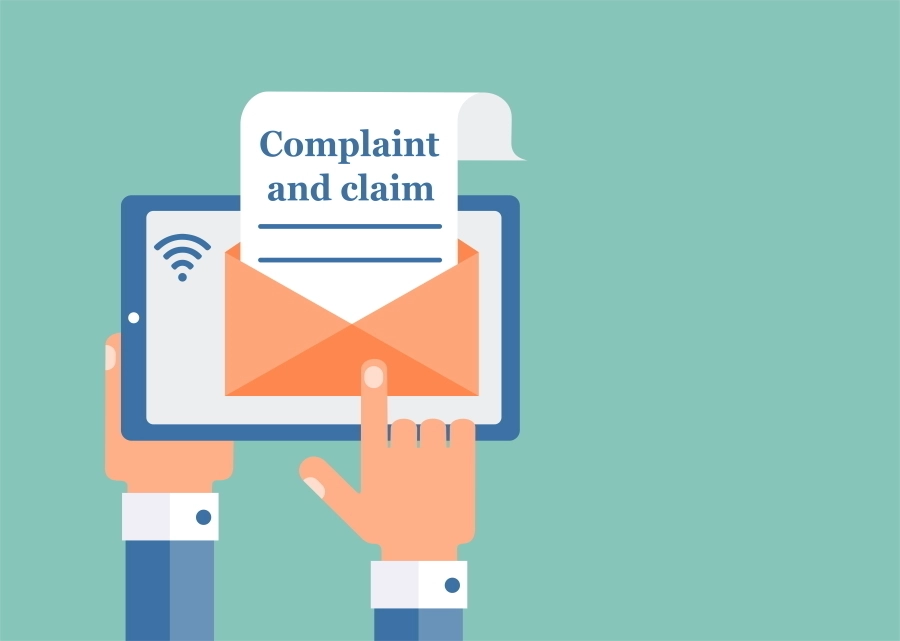Did you get offered a loan, credit card or overdraft that you could not afford?
Unaffordable lending claims are on the rise, with the Financial Ombudsman upholding a lot of their investigations. What should you do if you’ve been affected?
What is unaffordable lending?
If you’ve been given a loan, credit card or other credit agreement and can’t afford to pay it back or feel like you’ve been given more than you needed, it could be due to the provider failing to complete the necessary checks. If the company hasn’t checked your situation thoroughly, it could be irresponsible or unaffordable lending.
There are no specific checklists for lenders to follow, but they do need to act fairly by carrying out reasonable and proportionate checks.
This includes being confident that you can afford to pay the debt on time, in full, and without you having to borrow further or fall behind on other agreements.
It may be that you had a catalogue or credit card, and despite only the minimum payments, you had your credit limit increased. Or you may have been denied a credit card by your bank, but then offered an overdraft.
Some companies, such as Barclaycard, have contacted their customers themselves to explain their error and are encouraging those affected to get in touch. The Money Saving Expert suggests that thousands will receive an average of £230 in compensation.
If you feel you haven’t been able to do any of the above, had to borrow more after taking the initial credit, had your credit limit increased multiple times, or feel that most of your income is being paid towards repayments, you could consider approaching the lender to make a complaint. You can complain whether the debt is paid off, or if you’re still paying it back, it doesn’t matter.
How can I complain about unaffordable debt?
You can make a complaint a few different ways: via telephone, email, letter, online or maybe even webchat if the lender has this facility. Go with whichever suits you best, you might like the idea of a paper trail that you can file throughout the process.
It’s good to have some evidence or information together to help your complaint, such as dates & times of calls, emails or letters that you can attach to your complaint.
It’s also a good idea to get a copy of your credit report from a couple of credit reference agencies such as Experian or TransUnion. Your credit file is not static, older debts which have defaulted could be due to be cleared from your credit report soon, so it’s good to have evidence in case you need to take your claim to the Financial Ombudsman Service.
If you don’t have all the details surrounding your account/credit agreements with the lender, you can make a Subject Access Request (SAR) to request all the information they hold for free.
Whilst the complaint is being investigated, it could be a good idea to ask for the repayments to be reduced to something more affordable, if you’re still paying it back. However, ensure you discuss this with your lender in full, and check if any markers will be placed on your credit file. If the complaint is not upheld, it’s unlikely they will remove any references to reduced payments.
Find our free complaint templates at the bottom of this article.
What will they do with my complaint?
The lender will usually have a complaints team to investigate your concerns. If they find that they have acted irresponsibly, they will usually offer a resolution which may include refunding any interest or charges they applied to the debt and removing any adverse information recorded on your credit file such as a default or arrears marker. If the refund to the debt reduces the balance but doesn’t clear it entirely, you may still be liable for whatever’s remaining. If the debt is paid off and ends up in credit, a refund may be sent back to you.
I’m not happy with the complaint outcome – What can I do now?
Your complaint may be rejected, or you might not get the outcome you expected. If this happens you can let the lender know; they may reopen the investigation to see if they can come to a resolution that you’re happy with. It’s not uncommon for a company to reject your complaint or tell you that you provided information incorrectly when applying; you can still take it further.
The company will usually advise that the complaint response is final and include some details for the Financial Ombudsman Service (FOS). They can investigate your complaint further if you feel the response is unsatisfactory.
You can just send across your original complaint to FOS and include the creditor’s response too, or a summary. The easiest way to raise it with FOS is on their online complaint form.
It’s important to note that you must complain directly to the lender before escalating it to the Financial Ombudsman and give them an ample time to reply; usually 8 weeks.
The FOS will usually reply within 2-3 weeks to confirm your complaint or ask for any additional information. You can then expect a response in 3-4 months.
Guarantor Loans
Loans are offered by some lenders on the condition that you have someone to guarantee the debt for you, in case of a situation where you can’t pay yourself.
I’m the guarantor
If you are the guarantor for a debt and feel that you shouldn’t have been for any reason such as: you can’t afford the repayment, you didn’t know about the loan or understand what being a guarantor meant, or if you were pressured into being a guarantor by the borrower, you could complain and request for your guarantor status to be removed.
I’m the borrower
You may have found that you took out a guarantor loan as it’s the only credit option you were offered. They often come with extremely high interest rates and a stressful situation if you can’t meet the repayment, but don’t want your guarantor to be affected. As with any credit agreement, the lender must check that they’re being responsible when offering you the facility. Even if you’ve managed to keep up repayments, it may have been offered to you when it wasn’t really affordable. An example of this may be that you took out more credit to cover the cost of the initial loan and/or to remove the guarantor from the loan in case of any problems with repayments.
Guarantor loan providers usually ask for proof of your situation, such as bank statements, payslips and run a search on your credit file. If they didn’t do any of these, you could look to complain.
Is it worth my time?
When contemplating a complaint, you might be considering whether it’s actually worth your time and if your claim is viable. It’s important to remember that just because you were given the loan, it doesn’t mean you should’ve been. You may have been so desperate for the loan that you told the company that you could definitely afford it, but it’s still their responsibility to check.
Unaffordable Debt Complaint Letter Templates
Every complaint is different and will need a letter tailored to your situation. We have provided three templates for you to amend, as necessary:
My debt was affordable at the time, but not any more
Many debts may have been affordable at the time, and the lender was correct to lend the money. Our lives are however ever changing, and our debt can quickly become unaffordable.
If you’re struggling with unaffordable credit commitments and would like to explore any financial solutions that could help your situation, feel free to use our Online Debt Advice Tool or call us on 01925 599400.


